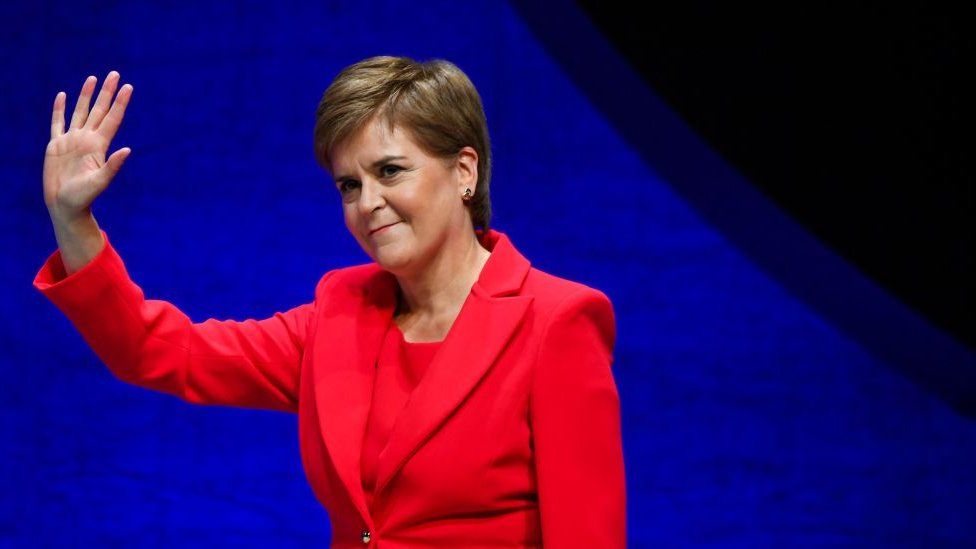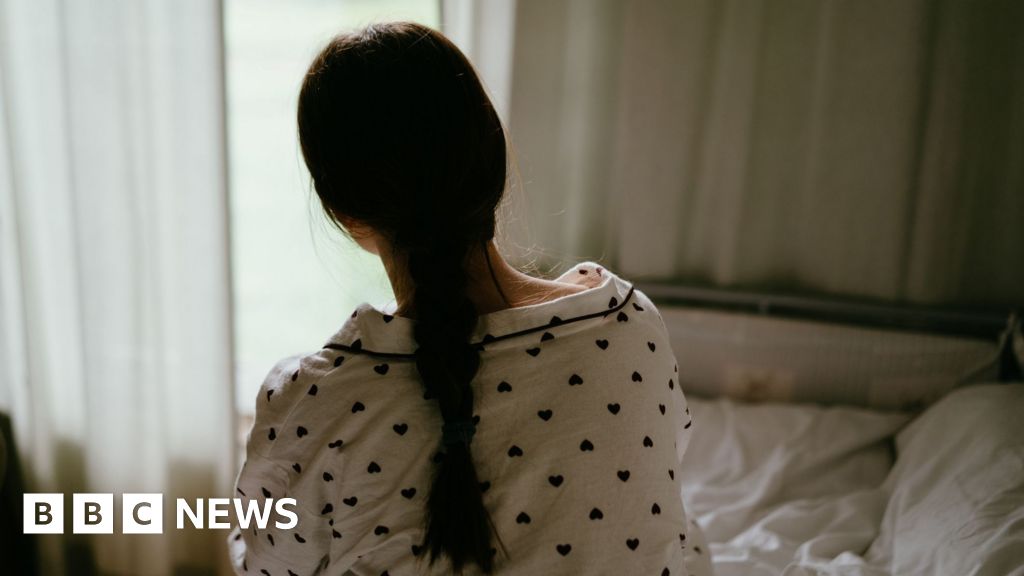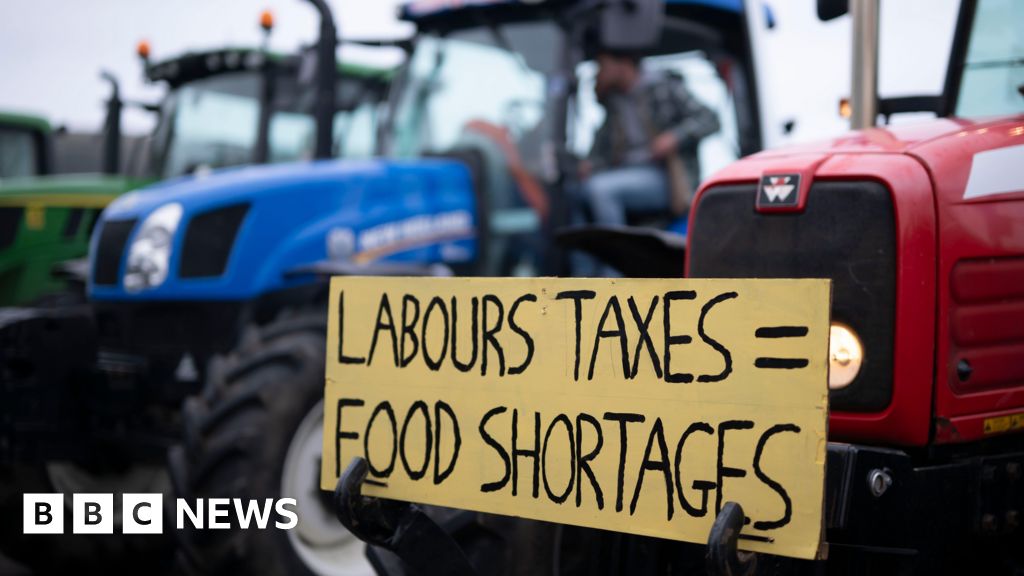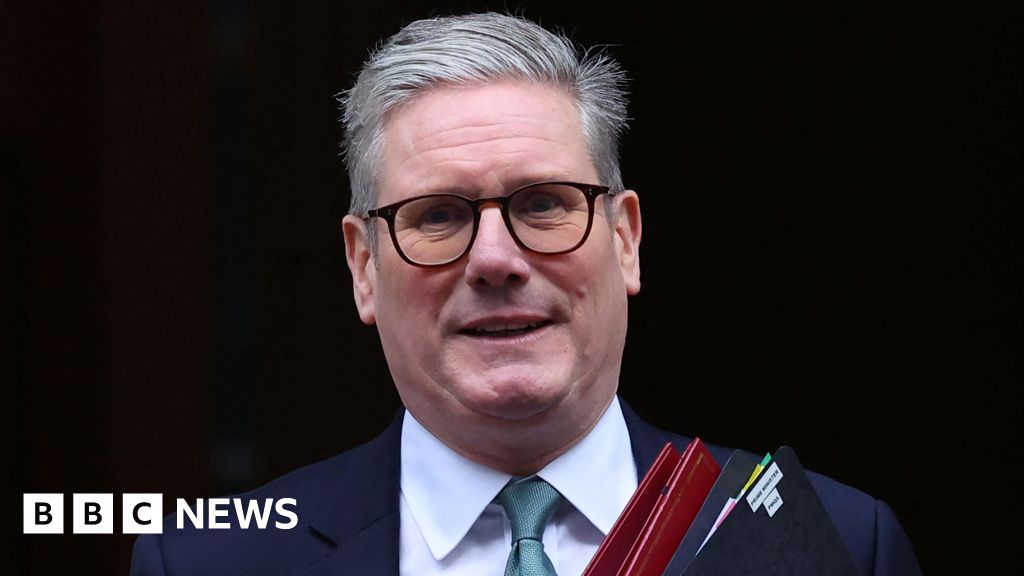ARTICLE AD BOX
 Image source, Getty Images
Image source, Getty Images
Nicola Sturgeon has stepped down after eight years as Scotland's first minister
By Philip Sim
BBC Scotland political correspondent
Nicola Sturgeon has announced that she will step down as Scotland's first minister after more than eight years.
She has resigned without achieving the one overriding ambition which first sparked her interest in politics as a teenager - Scottish independence.
Ms Sturgeon was born in Irvine in Ayrshire in 1970 and was already an SNP stalwart in her teens, campaigning for the party in the 1987 general election.
She has previously said it was Margaret Thatcher who inspired her to enter politics, saying she hated everything the Tory politician she stood for.
By 1992, at the age of 21, she was selected as a candidate herself, standing in the Glasgow Shettleston constituency where she was beaten by Labour by 15,000 votes.
Her ambition was undiminished and she went on to stand in a series of council and Westminster contests.
At the same time, she graduated in law from the University of Glasgow, and worked for two years as a solicitor in the city.
Image source, Getty Images
Image caption,Ms Sturgeon first entered parliament in 1999, aged 29.
Her political career fully took off with the opening of the Scottish Parliament in 1999, where Ms Sturgeon won a Glasgow seat on the regional list ballot.
The SNP became the main opposition to the Labour-Lib Dem coalition running the new parliament, and Ms Sturgeon took up a series of shadow briefs - first on education, and later on health.
When John Swinney resigned as SNP leader in 2004, she pitched herself into a leadership contest against Roseanna Cunningham. But the race changed when Alex Salmond decided to return and throw his hat into the ring.
The two politicians sealed a pact which saw Ms Sturgeon run as Mr Salmond's deputy - and effectively his representative in the Scottish Parliament, given he was an MP and not an MSP at the time.
It also meant she became deputy first minister when the SNP took power in 2007, as well as the important post of health secretary.
She won the constituency of Glasgow Govan at that election, a seat she has comfortably held ever since.
Image source, Getty Images
Image caption,Ms Sturgeon became the deputy first minister when Alex Salmond was elected in 2007
Ms Sturgeon also played a crucial role during the 2014 independence referendum campaign, when she often took the lead as the "Yes minister".
It was the failure of that campaign which led to her ascending to the very top of Scottish politics, with Mr Salmond stepping down in the wake of Scots voting No to independence by 55% to 45%.
This time, Ms Sturgeon was the only candidate in the leadership race - and she swept to power in rock star style, embarking on a stadium tour to announce herself as Scotland's first female first minister.
Momentum was behind the SNP, and the party delivered a historic landslide in the 2015 general election, winning 56 of the 59 seats in Scotland.
Ms Sturgeon followed that with another Holyrood win in 2016 - albeit short of the unprecedented majority the party had won under Mr Salmond in 2011. She won again in 2021.
In between those wins, she guided Scotland through the Covid pandemic, hosting daily briefings from the government's St Andrew's House headquarters.
She also drove through a host of policies, from a doubling of Scotland's free childcare allowance to the introduction of the baby box.
However others fell short - notably her promise to close the attainment gap between school pupils from better off and more deprived backgrounds, something she once famously made her number one priority.
The toddler Nicola Sturgeon would in her teenage years enter the political arena
Those policies may turn out to be her main legacy as first minister, given she has failed to progress the issue which brought her into politics.
Ms Sturgeon pushed for a referendum on Scottish independence on several occasions - most notably in the wake of the Brexit vote in 2016 - but each time she ran into a wall of opposition from the UK government.
While she had to deal with five prime ministers - in David Cameron, Theresa May, Boris Johnson, Liz Truss and Rishi Sunak - none of them were willing to sign up to a second constitutional contest.
An attempt to force the issue through the Supreme Court also foundered, and Ms Sturgeon was planning a special SNP conference in March to decide what the next move will be.
That is part of the reason why her sudden resignation is such a surprise - without Ms Sturgeon, who will set the direction of the independence movement at such a pivotal movement?
The departure of a figure who has been at the very top of Scottish politics for so long leaves a lot of unanswered questions hanging.

 1 year ago
31
1 year ago
31








 English (US)
English (US)